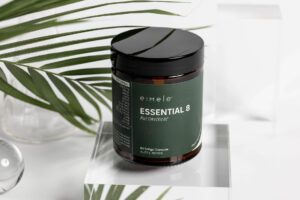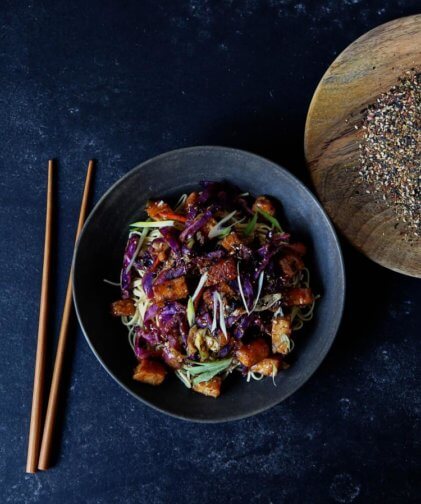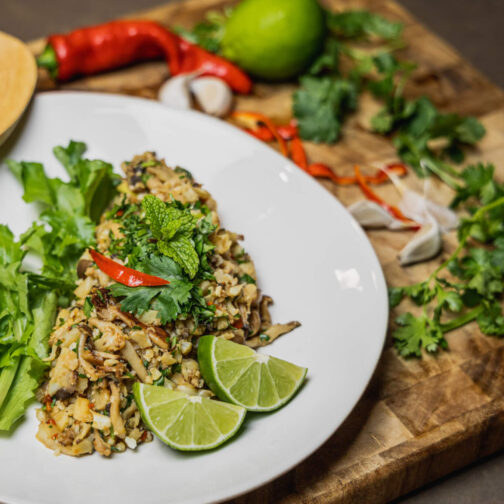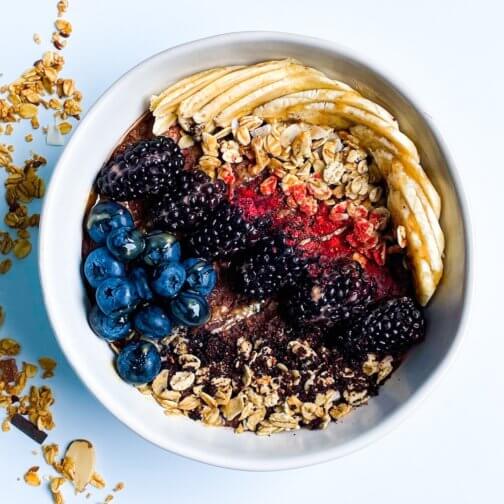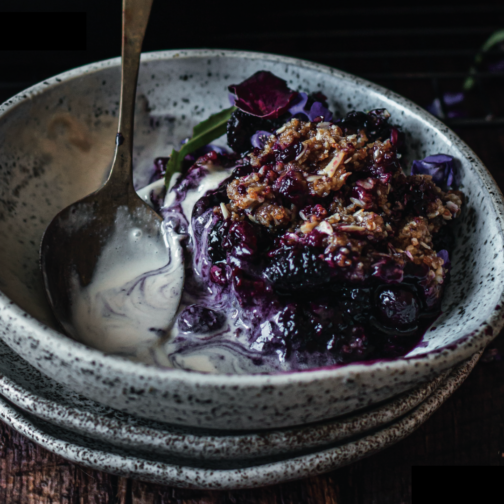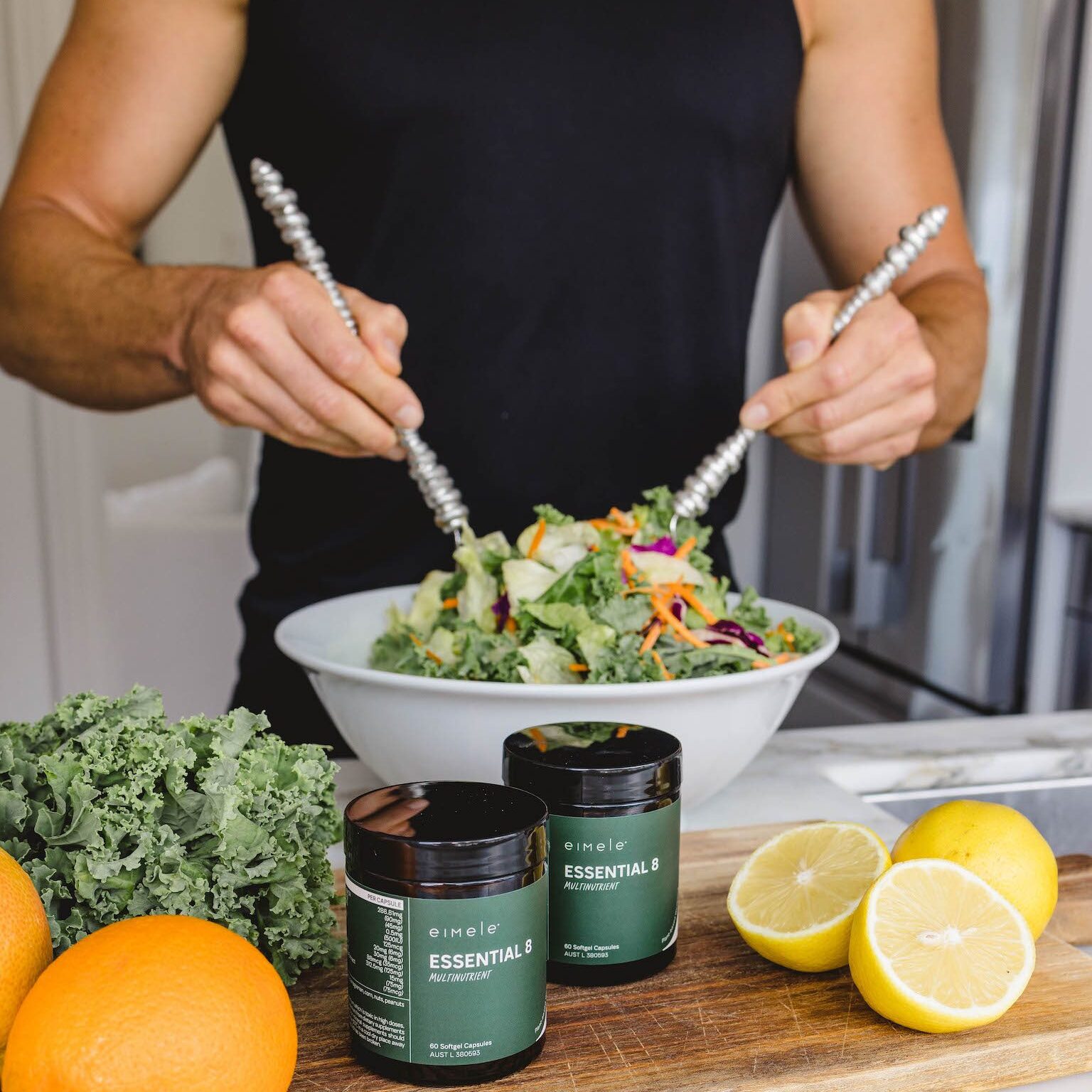
Whether you’re new to plant-based eating or a long-time vegan, it’s likely you’ve heard some mixed messages about nutritional adequacy and the need for supplementation. Let’s clear up the confusion.
Simon Hill is a qualified nutritionist, published author and host of the acclaimed The Proof podcast. He is also lead scientific advisor for eimele, a plant-based brand which makes a range of innovative products to help fully unlock the health benefits of plant-based diets.
Here he answers some of the most common questions that crop up around plant-based diets and the need for supplementation. The take home message? If your diet is rich in plants, be it fully vegan or plant predominant, you are giving yourself the best chance of a long and healthy life. And, to optimise your plant-based lifestyle, there are certain nutrients of focus for which supplementation can be a great solution.
1. If I need to supplement my plant-based diet, that must mean it’s inherently deficient
All diets can fall short if they’re not appropriately planned. When you eat a plant-predominant or plant-exclusive diet, you lower your risk of numerous chronic diseases – and, at the same time, there are some key nutrients of focus to pay attention to.
The good news is that these nutrients are easily obtained from non-animal sources. Whether it’s appropriate safe sun exposure for vitamin D, a daily Brazil nut for selenium, or fortified foods for vitamin B12, as plant-based eaters, we can in principle meet all our nutrient needs without taking any supplements at all. The option of taking a regular supplement is a matter of convenience – offering an easy way of consistently covering your bases.
It’s also instructive to turn this question on its head and consider if standard omnivorous diets have nutrient gaps. What we quickly discover is that they do – some of which are the same nutrients of focus for plant-based diets, such as vitamin D and iron (with deficiencies common across the board), iodine (this is why governments require fortification of table salt), and even B12 for people aged 50 and over. They are also commonly deficient in important nutrients that are abundant in plant-rich diets, including fibre, polyunsaturated and monounsaturated fats, folate, vitamin C, vitamin E, and more.

2. Synthetic supplements are unnatural
This is something you might hear as an objection to plant-based diets, particularly in regard to vitamin B12, as this is the one nutrient we have to obtain from a synthetic source – whether through supplements, fortified foods, or injections.
The first thing here is to take a step back and recognise that natural does not always mean better, and synthetic does not always mean bad. This is what’s known as the naturalistic fallacy. There are many ‘unnatural’ elements of modern life and human behaviour that offer wide-ranging benefits for our wellbeing, society, and the world. Taking an isolated supplement, to prevent a deficiency, might be ‘unnatural’, but it is also incredibly smart. Antibiotics aren’t natural either, but they can be the difference between an infection leading to death or amputation versus a speedy recovery.
It’s also worth remembering that a large proportion of omnivores need to supplement B12, too, so it’s not just a concern for vegans and plant-focused eaters. Not only that, but around 90 percent of the world’s vitamin B12 supplements are fed to livestock – hardly a ‘natural’ state of affairs either!
3. I can get all the nutrients I need from food sources as a vegan
In principle, this is possible, as long as your diet includes foods fortified with vitamin B12, and you obtain adequate vitamin D through safe sun exposure. You can meet iodine needs with certain seaweeds (and iodised salt), omega 3 with walnuts, chia and ground flax seeds, and obtain your selenium, calcium, zinc and iron from plant foods rich in bioavailable sources of these minerals.
However, it can be challenging to obtain everything required on a consistent basis, and ‘adequate’ intake is not always the same as ‘optimal’, where supplementation provides an excellent insurance policy. This is particularly true for vitamin B12 which would require regular consumption of fortified foods in adequate amounts throughout the day – hence why most plant-based nutrition experts recommend supplementation of this crucial vitamin, even if it’s the only one you take.
It’s also important to be aware that some deficiencies may not be apparent, especially in the early stages, unless your doctor orders specific testing. So it’s great to have the option of taking a simple supplement to cover all your bases and avoid silent deficiencies from establishing in the first place.
It’s these considerations that inspired eimele to create its Essential 8 multinutrient – specifically formulated to include the right nutrients in the right doses for people who follow a plant-predominant or plant-exclusive diet.
4. I read that supplements don’t do anything and can even be harmful
It is always a good idea to question health claims, be it for a particular diet, superfood, herbal remedy, or nutritional supplement! This is an obsession of mine, as followers of The Proof will know. It’s absolutely correct that some supplements have been found to be ineffective or even pose health risks in certain circumstances, such as isolated vitamin A and vitamin E. And it’s also the case that many supplements are formulated and produced in underregulated markets, which means the content may not match what’s claimed on the label.
This is why the product you choose – if you choose to supplement – is so important, and is why I am proud to work with eimele, a brand that shares my rigorous approach to nutrition science, ingredient sourcing, and passing the world-leading standards of our Therapeutic Goods Administration here in Australia. This ensures we are offering only the highest quality sustainably sourced nutrients in evidence-based dosages and highly bioavailable forms.
***
Remember: by prioritising whole plant foods, you are nurturing your body with an abundance of health-promoting nutrients with proven health benefits. You’re also relieving your body – and the planet – of the burdens imposed by animal products. With a bit of attention to the nutrients of focus for this lifestyle, you are giving yourself the best chance to add years to your life and life to your years.
In partnership with eimele
Images: courtesy of eimele

